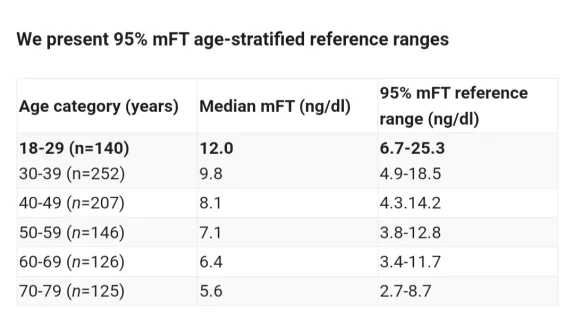In trying to investigate this question, I found the following study that focuses on older men age 40-79. They found a threshold level of 7.79 ng/dL free T below which sexual symptoms including loss of libido, loss of morning erections, sexual dysfunction became more frequent. They note that this level is similar to the Endocrine Society guidelines regarding free T threshold for hypogonadism (which don't change based on age).
In this study, we investigated the essential criteria for late-onset hypogonadism (LOH) syndrome based on the presence of symptoms associated with low testosterone levels in Han Chinese men. Blood tests for total testosterone (TT) and sex ...

pmc.ncbi.nlm.nih.gov
I agree symptoms are important. Consider this scenario though: you feel good with low T levels (no symptoms), but you have a high hba1c due to poor insulin sensitivity, low bone mineral density, and are overweight with excessive fat and low muscle mass. Should we not consider testosterone treatment to reverse all of those unfavorable metrics which bode poorly for your longevity?












